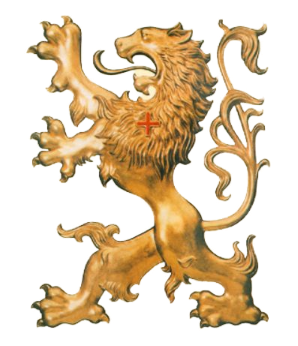|
Plinio Corrêa de Oliveira
Grilling the Left and the Extreme Left
|
|
|
For brevity's sake, I will quote only a few excerpts from a speech by the Cuban dictator published in O Estado de S. Paulo (Brazil) under the title "Fidel Says He Is the Last Communist." In this article published on October 31, 1989, Fidel, the Cuban Stalin and the object of much strong praise from Friar Betto and Friar L. Boff, severely criticizes Gorbachev and his program. Declaring himself ready to continue defending communist orthodoxy even though "nobody else in the world does so," he avows, "We shall never renounce the honorable title of communist." Later he exclaims, "Long live rigidity, not flexibility, in the defense of revolutionary principles!" Still not content, he further affirms, "Now they say there are two types of communists: the good and the bad. I want to say that we are among the bad – bad because we are incorrigible, … we will never regress to pre-history." Finally, he says in closing, "We must remain … firm and entrenched in the ideas of Marxism-Leninism, in the ideas of communism and of socialism". In other words, although confronted with Gorbachev's very questionable openness, the dictator, who has governed the island-prison for 30 years, has placed himself at the most extreme point of communist radicalism. It is difficult to ascertain whether anything distinguishes him from the Chinese hard-liners, responsible for the recent massacres in Beijing in a square named (what cruel irony!) "Heavenly Peace." Now, the TFPs have always been unceasingly attacked, on behalf of South America's ideological center-left, by persons habitually indignant over our indefatigable anticommunist position. Well do they sense the possibility of being unmasked as communists were they to affirm the real basis of their antipathy toward us, so their deeper thoughts are hidden behind a tenuous veil. They attack us, therefore, not properly for our anticommunist positions, but for our "radicalism." We are "radicals of the right," as loathsome and as harmful (so they say) as the "radicals of the left." Yet they never attack these leftist-radicals. But, as far as the TFPs are concerned… I now ask these radicals of anti-"radicalism" a question: If evil lies exclusively in radicality, would consistency not oblige you to unleash against Castro the same media uproars you unleash against us? The Cuban dictator's declarations are not less radical than those attributed to us. I demand, then, that you clarify your attitude regarding the dictator's present positions. Fidel Castro's recent outburst—so closely related to people, ideological currents and internal situations in our country—provides occasion for broadening our horizons beyond our borders. As we scan these horizons, we immediately see our sister nations of South America. Communist currents agitate them all. Generally speaking, these currents are few in number but, nonetheless, important for the support they receive (oh sorrow!) from the higher ranks of the ecclesiastical hierarchy, as well as from macrocapitalism in general, but more particularly from media macrocapitalism, and, finally, from a considerable number of the intelligentsia and jet set. As for Colombia, the communist and drug guerrillas are draining the country's lifeblood as a result of their mutual fighting. Similarly, the Shining Path has been devastating Peru for years. These movement's are obviously supported, for the most part, by aid from Cuba, which, in turn, receives it from Russia. It is certain, moreover, that Fidel Castro exercises great influence over all these leftist extremisms, not to mention the Nicaraguan guerrilla movement, which has now extended itself to El Salvador. However, this influence is not limited to these alone. For when Carlos Andres Perez took office as president of Venezuela in February 1989, the Cuban dictator was literally escorted by many of the so-called moderate heads of state present for the occasion. This was a repetition of what had recently taken place at the inaugurations of Presidents Rodrigo Borja in Ecuador and Salinas de Gortari in Mexico. Thus, Fidel Castro's recent anti-Gorbachevian outburst has evident repercussions upon the whole continent. In this sense, the South American public will inevitably be curious as to the attitude the extreme left and the moderates will take in face of Fidel Castro's rupture with Gorbachev. And this is also what really rouses the curiosity of the Brazilian TFP. I have every reason to believe that this same curiosity stirs the TFPs of our sister if not also neighboring countries. Not speaking in their name, but on my own as part of this large family of souls of the TFP, let me note that the afore mentioned article in O Estado is dated October 31. Yet, November has come and gone without anything having been said, whether from the extreme-left or from the center-left, about this new and garish outburst of Castroian radicality. In view of this silence, it is time to question the adherents of each current. To the unvarnished communist, the terms of this inquiry are simple: Why are you silent? What holds you back? How long will you remain quiet? But I address the finer and more incisive questions to the complex adherents of the center-left. Thus, you fence sitters, middle-of-the-roaders, and the like, inveterate toads or hopeless "useful innocents," fanatics of anti-"fanaticism," come right out and say what you think of Fidel's bold radicalism. I expect one of your eloquent leaders to accept our invitation. I make yet another: With all frankness, tell us what you think of those who are now in power in China, the purported pillars of the shaggy Cuban dictator. I am all ears. (*) “Folha de S. Paulo”, January, 3th 1990. |
|

